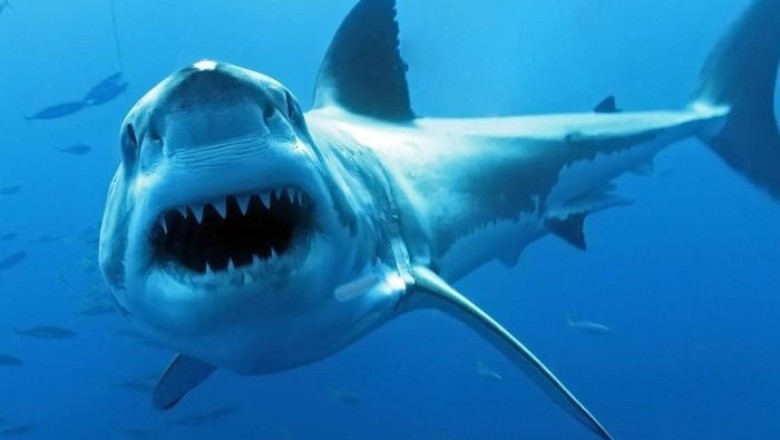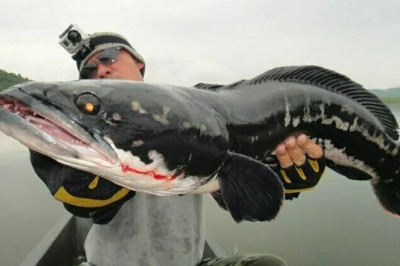Unveiling the Myths: Understanding Sharks Beyond the Fables

Sharks have long captivated human imagination, thanks to their impressive presence in the ocean and their sometimes fearsome reputation. While many facts about these intriguing creatures are based on scientific research and observation, a host of myths has proliferated that can distort our understanding of their nature. Unpacking these myths is essential, not only to appreciate these apex predators but also to prevent harmful consequences that arise from misinformation. Let’s dive into some fascinating misconceptions about sharks and discover the truth behind them.
The Myth of Blood Detection
One of the most pervasive myths about sharks is their supposed ability to detect a single drop of blood from great distances. This belief has instilled fear in beachgoers, convincing many that even the faintest wound could lead to a shark attack. In reality, a study conducted in 2010 by Dr. Tricia Meredith at Florida Atlantic University revealed that sharks’ sense of smell is not as extraordinary as we might think. Through experiments using amino acids and blood-like substances, she found that sharks’ olfactory capabilities are comparable to those of salmon.

Dr. Meredith comments, "We tend to think that sharks are special, but they’re really just fish." While sharks have formidable teeth and are indeed powerful predators, their sensory perceptions should not be overstated. Therefore, swimming with a small cut poses no significant risk, and one should ensure their safety by being aware of their surroundings rather than succumbing to unfounded fears.
Misconceptions About Shark Cancer
Another myth propagated by the 1992 book Sharks Don’t Get Cancer by William Lane and Linda Cormack alleges that sharks are immune to cancer and that consuming shark cartilage could be a remedy for the disease. Unfortunately, this claim is not only inaccurate but also dangerous. For over a century, scientific evidence has confirmed that sharks can, in fact, develop cancer.
This myth has dire consequences. A 2004 study revealed alarming trends in the decline of shark populations due to the demand for their cartilage, as people falsely believe it has cancer-fighting properties. More distressingly, some cancer patients are opting for this dubious treatment instead of pursuing proven medical therapies. Thus, debunking this myth is crucial for protecting both shark populations and the health of individuals misled by this misconception.
Shark Attacks: A Rare Occurrence
The idea that sharks are deliberately hunting humans is deeply ingrained in popular culture, often exaggerated by movies and sensational news stories. The reality is that shark attacks are remarkably rare. According to data from the International Shark Attack Database curated by the Florida Museum of Natural History, there were an average of just 77 attacks per year globally over the past decade, with fewer than 10% resulting in fatalities.
To put these statistics into perspective, the odds of being attacked by a shark are 1 in 3.7 million—far lower than the odds of drowning, which stands at 1 in 1,134. Although the number of reported attacks may seem to rise, this trend is largely a reflection of increased ocean activity among swimmers and advancements in monitoring technology. Sharks, it appears, are not becoming increasingly aggressive toward humans; they simply share the ocean with us.
The Swimming Myth
Another widely held belief is that sharks will die if they stop swimming. While it's true that some species, particularly those like the great white and whale sharks, rely on a method of breathing that requires constant movement (known as flow-through respiration), this is not universally applicable to all sharks. Many species can utilize a different breathing method called gular respiration, in which they can remain relatively still and still draw in water through their mouths to pass over the gills.
Thus, only about two dozen species necessitate constant movement for respiration. Most sharks aren’t bound by this rule and can adapt to various environmental conditions, including resting on the sea floor while still being able to breathe. This myth underscores our misunderstanding of these complex creatures and the need for continued education about marine biology.
The Predation Argument
Lastly, many may believe sharks sit atop the ocean's food chain, facing no natural predators. However, this notion overlooks a critical reality: humans are the primary threat to sharks. Estimates suggest that around 100 million sharks are killed annually, primarily for food, sport, or as bycatch in fishing operations.

Further complicating this issue is the sad reality that endangered species, such as the scalloped hammerhead and various types of dogfish, are sometimes used in popular dishes like shark fin soup. This exploitation highlights an essential aspect of nature's intricate web: that every species plays a role in the ecosystem's balance, including sharks.
The Importance of Sharks
As apex predators, sharks are vital to maintaining the health of marine ecosystems. They regulate the populations of other species and contribute to the overall balance needed for healthy ocean environments. Human actions, driven by myths and misunderstandings about sharks, can have detrimental effects on marine biodiversity and ecological stability.
In understanding the nuances of these incredible animals, we foster respect and appreciation rather than fear. The continuous spread of misinformation does not just harm sharks—it jeopardizes the ecosystems they inhabit and, by extension, the health of our planet.
Conclusion
Through education and awareness, we can dispel these myths and cultivate a better understanding of sharks. Instead of allowing our perceptions to be clouded by myths, it is imperative that we seek the truth behind these fascinating beings. Sharks deserve our respect and protection, as they are not only magnificent predators but also key players in the survival of marine life. Let’s celebrate the real sharks and work towards a harmonious coexistence in our watery world.
























Comments
0 comment